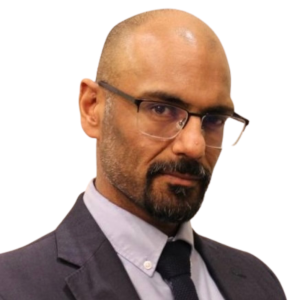Once solely the preserve of the rich and famous, the popularity of aesthetic cosmetic surgery has exploded in recent years. This is partly due to societal factors, such as an increasing emphasis on youth and personal fulfilment. In addition, cosmetic and aesthetic surgery procedures and techniques are developing rapidly, and new technologies and treatments are becoming available all the time. As the number of operations performed has gone up, so has the incidence of litigation for alleged malpractice. The specialty also raises a number of other medicolegal considerations. Mr Pundrique Sharma, Consultant Plastic Surgeon, explores the challenges.
While each cosmetic procedure has liability issues specific to itself, there are a number of common problems that occur across all treatments. These include issues regarding proper informed consent, missing significant events in the patient’s previous medical history, problems in performing a procedure and difficulties in diagnosing and treating complications arising from surgery. Common complications include infection at the site of surgery, excessive scarring, nerve damage and other functional issues, and excessive postoperative pain.
Aesthetic cosmetic surgery is unique in that its primary purpose is not to treat specific pathology, but to alter the external appearance of the patient. Thus, most treatments are carried out at the request of the patient. However, the proposed procedure should still be medically appropriate for each patient. Evidence of the effectiveness and safety profile of the intended treatment needs to be carefully considered, particularly in the case of newly available procedures. There is some evidence that surgeons who are more senior, and hence more experienced, are less likely to face disputes and possible litigation.
Because the actual quality of a result following an aesthetic procedure is ultimately relatively subjective, issues can arise when the patient and surgeon have different expectations of the likely outcome of a cosmetic procedure. Failure to achieve the desired result can lead to claims of alleged negligence on the part of the surgeon. Therefore, informed consent, which should include a discussion of the limitations of any procedure, is probably more important in cosmetic surgery than in any other area of medicine. It is vital that the patient is of a suitable age and mental capacity to be able to consent to treatment. Patients should be made aware of the risks and benefits of a proposed procedure, along with any alternatives that may be available. A ‘cooling-off’ period between the initial consultation and the actual procedure is also beneficial. Once the surgery has taken place, patients should be provided with information on what to expect during recovery. Any potential issues to watch out for should also be highlighted.
There is emerging evidence that a significant minority of patients undergoing cosmetic surgery are suffering from body dysmorphic disorder (BDD). This is defined as an excessive preoccupation with minor or imagined defects in physical appearance. It is generally considered to be a contra-indication for cosmetic surgery, although estimates of the prevalence of the condition in cosmetic surgery patients range from 7-15%. Due to their obsession with minor imperfections, patients with BDD have high levels of dissatisfaction with the outcome of surgery, even if it is successful, and are more likely to pursue a claim for negligence. Therefore, surgeons need to be able to recognise and successfully manage patients with BDD in order to protect themselves from potential claims.
Performing aesthetic cosmetic surgery on children presents some additional medicolegal challenges. Data on the prevalence of these procedures in children are scarce but it has been suggested that up to one-third of young people express dissatisfaction with their appearance. It is also known that this is often the motivation to undergo a cosmetic procedure. Surgery for children is generally only undertaken if it is in the child’s best interests, whether these be medical, psychological or social, but defining ‘best interests’ in legal terms is not easy. The views of both the parents and the child should be sought, although it is important to remember that the child may be subject to influence by the parents or other parties. When making a decision about a child’s competence to consent to medical treatment, consideration should be given to the child’s age and emotional maturity, as well as their understanding of the nature of the proposed treatment and the short- and long-term consequences of it. Other relevant issues in deciding what the child’s best interests are include the risks and benefits of the surgery, compared with not having it and assessment of the child’s current psychological state and social issues, such as bullying or teasing at school, and how these may be influenced by having or not having the surgery. The possibility of postponing surgery until the child is older should also be considered.
While litigation for alleged malpractice is relatively common in aesthetic cosmetic surgery, most claims do not relate to errors or adverse events. Instead, they are more likely to be the consequence of problems surrounding patient selection and communication. Thus, detailed documentation of all discussions between doctor and patient, and written informed consent from the patient, must form an integral part of a surgeon’s protection against a potential claim.
Further reading:
Del Rio A, Rinaldi R, Napoletano S, di Luca NM. Cosmetic surgery for children and adolescents: deontological and bioethical remarks. Clin Ter. 2017;168(6):e415-e420. doi:10.7417/T.2017.2044
Piras M, Delbon P, Cnti A, Graziano V, Capasso E, Niola M, Bin P. Cosmetic surgery: medicolegal considerations. Open Med. 2016;11:327-329.

